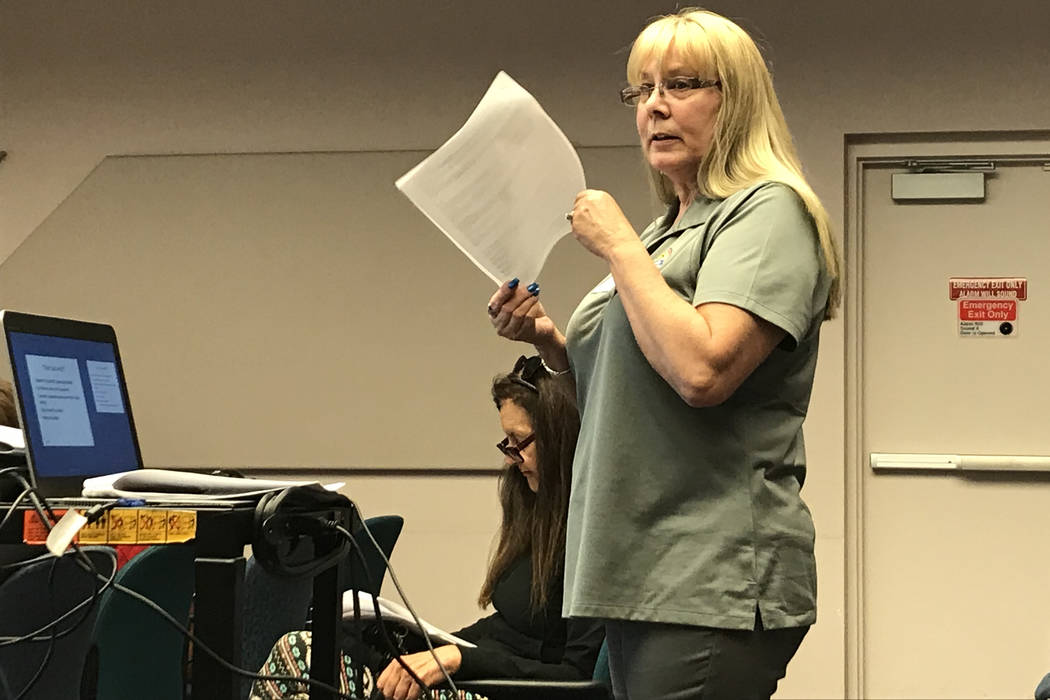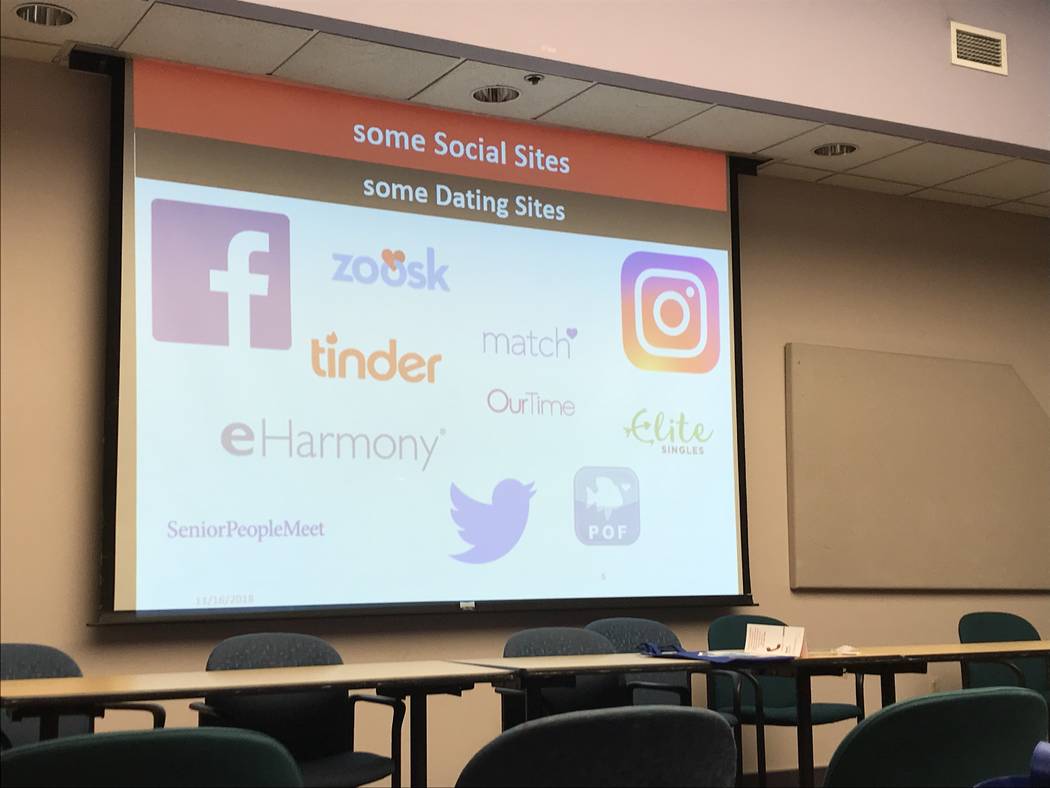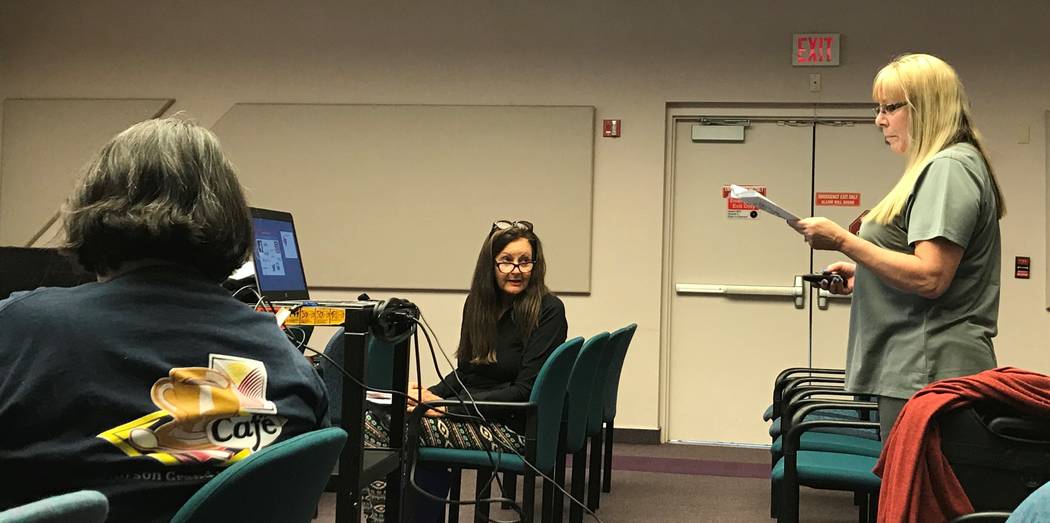AARP warns Las Vegans of liars posing as lovers online
“Charlie from Texas” is a fictional figure in an online romance-related scam that Jacqueline Barnett, community outreach director for the AARP Las Vegas office, hears about often.
The story goes, a Texas woman trapped in an unhappy marriage finds a man online, Charlie, and falls in love. Eventually the online lover asks for more and more money from the woman to complete construction projects in California. Never meeting in person, the woman gives him multiple loans, and Charlie disappears. The woman is left with little in her savings account.
Jet Spore, volunteer with the AARP Las Vegas office, presented the story Nov. 28 to a group of women who gathered at Enterprise Library to hear about the dangers of online-dating scams.
Barnett said online dating is common in Las Vegas, which she attributes to the large number of out-of-towners looking to make friends and find romance in a new city. AARP reports that about 815,000 Las Vegas Valley residents are older than 50 — a sizable chunk of the valley’s population of more than 2 million.
“Meeting in person in a big city is intimidating; people like to go online to meet people,” Barnett said. “We see a lot of widows and widowers looking to get back out there.”
According to AARP’s Fraud Watch Network, as of December 2013, 1 in 10 American adults had used online dating services such as Match.com, Plenty of Fish and eHarmony. In 2016, the Federal Trade Commission listed scams, including romance-related schemes, as the second-most-common source of complaints received by its Consumer Sentinel Network. The most common complaint involved debt collectors.
People running scam dating accounts are typically quick to seek a deep connection, Barnett said.
“You would be amazed at the amount of money people give; they tell the seniors they would like to come see them, they want to travel or they will say something happened that they need money for,” Barnett said.
In the presentation “Sweetheart or Swindler: Avoiding Romance-Related Online Scams,” Spore explained that these scams are common during the holiday season.
“Be more alert around the holidays,” Spore said. “Tell your friends. We know a lot of them are lonely, and they get online and they chat and they find people; I mean, they want to talk to people. Especially those who are isolated at home. They are more susceptible around these times.”
Spore told attendees to talk to their friends and families about online scams. She said people who have been conned are often too embarrassed to report it, adding that reporting and sharing are the only ways to stop a scammer.
Attendee Ellen Ross, a southeast Las Vegas real estate broker, called the scams disrespectful and said seniors need to be able to connect to the outside world without fear of harm.
“We need to show more compassion, and be aware of what is happening in the community,” she said.
Contact Rachel Spacek at rspacek@
Resources
AARP's Fraud Watch Network tracks reports based on ZIP code. To view a "heat map" showing complaints and where they originate, click here. For more information about the Fraud Watch Network, click here.
























